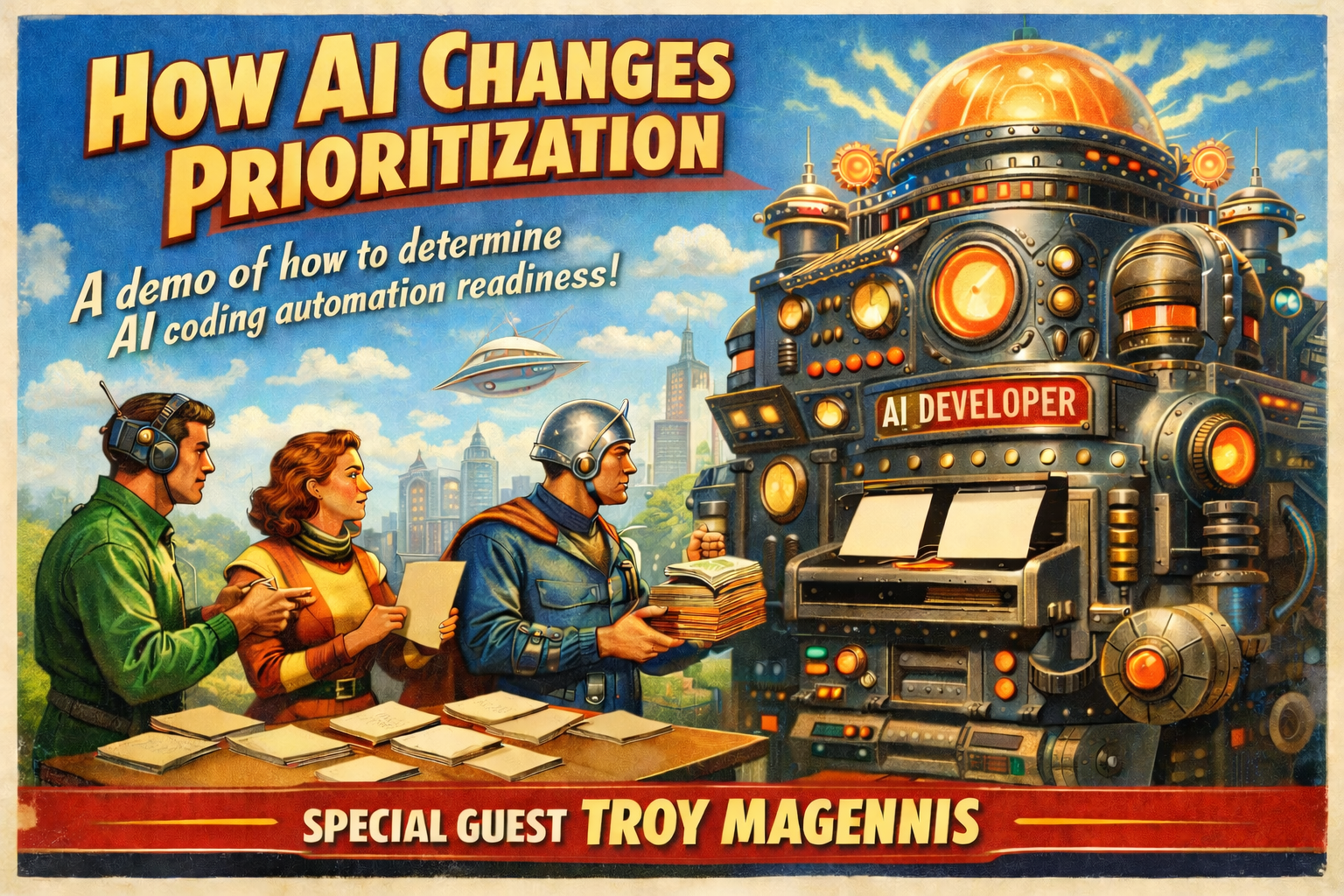Agile Lunch and Learn
-

In this deep dive into Agile Principle #9, we are going to explore not only the historical principle under traditional development processes but also how the principle applies in the world of AI-enabled development work.
More... -

Traditional Agile often prioritizes work based on the constraints of development teams and resources. AI automation makes some work trivial, and this session shows one practical way to sort backlog items into AI-ready and non-AI-ready categories based on many factors, such as risk, reward, prior disasters of similar types of work, etc.
The workflow demonstrated shows a new way of thinking about backlog prioritization in an AI world, and what I've learned over the past six months of applying these principles.
More...

